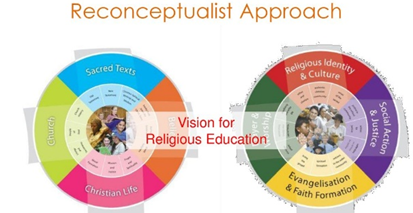Curriculum Approaches
Presented by Wilma Sopa
The curriculum approaches are discussed in this section with a view to provide insights into the nature of the new Basic Education Curriculum in Mozambique. However, the pertinent reflections are made in section 2.3.7. According to Marsh and Willis (1999:18) curriculum approaches are: different ways of thinking about curriculum and of connecting thought with practice, whether the many beliefs and ideas that constitute any particular curriculum approach are made explicit or remain implicit.
According to Ornstein and Hunkins (1993) the main curriculum approaches
are the following:
· Behavioral
· Managerial
· Systems
· Academic
· Humanist
· Reconceptualist
An expository discussion of those approaches follows:
The behavioral approach
The behavioral approach is the oldest and still the reference approach
to curriculum. ―Behaviorism is primarily concerned with observable and
measurable aspects of human behaviour (Standridge, 2002).
According to Power (1982), the basic principle of behaviorism is: Whatever
can be known about human beings must come from an observation of behaviour,
moreover, must be conducted according to the strict methods of scientific
procedure that is used in the physical sciences.
The managerial approach
The managerial approach entails consideration of the school as a social
system, based on organizational theory, in which the constituent members (e.g.
students, teachers, curriculum specialists, and administrators) interact in
harmony with certain norms and behaviour. In this context the managerial
approach focuses on programmers, schedules, space, resources, and equipment, as
well as personnel, requiring cooperation among teachers, students and those who
are responsible for curriculum supervision outside of school. Ornstein
& Hunkins (1993).
The systems approach
Ornstein & Hunkins (1993) states that the main feature of the systems approach is the interconnectedness of different programs and content areas included in curriculum, while serving as an index of how the school is restructuring and reculturing , for example by introducing a monitoring and assessment system.
The academic approach
This approach is concerned with comprehensive domains of schooling,
including the study of education. It is usually scholastic and theoretical,
hence, also referred to as ―traditional, encyclopedic, synoptic, intellectual,
or knowledge-oriented approach. (Ornstein & Hunkins 1993).
The humanistic approach
According to Ornstein & Hunkins (1993), the humanistic approach is
underpinned by child psychology with a view to coping with the needs and
interests of children and by humanistic psychology with emphasis on valuing,
ego identity, psychological health freedom to learn, and personal fulfilment.
The teacher therefore serves as facilitator and resource person for students.
The reconceptualists
approach
According to Jackson (1992:35), it is based on three main
characteristics: (1) dissatisfaction with the Tyler Rationale, (2) the
employment of eclectic traditions to explore curriculum, such as psychoanalytic
theory, phenomenology, existentialism and (3) Marxist and neo-Marxist trends.
In theory the three perspectives intended, implemented, and attained curriculum and concomitant approaches differ in meaning according to the perspective of analysis. The general objectives set up in the National Education System Act for basic education were reexamined and reelaborated as the foundation stone of the new curriculum. The restated objectives resulting from the employment of an interdisciplinary strategy to integrate the curriculum build the intended graduated profile of basic education or outcomes in the domains of (1) personal development, (2) socioeconomic development, (3) technical and scientific development and (4) cultural development (PCEB, 2003).







Comentarios
Publicar un comentario